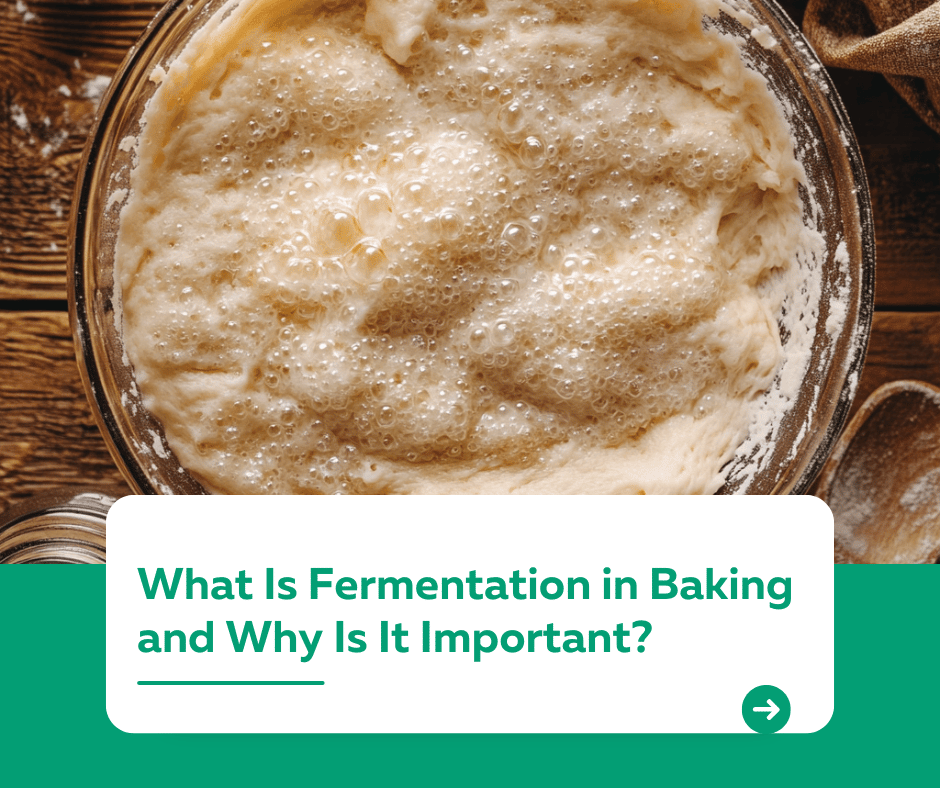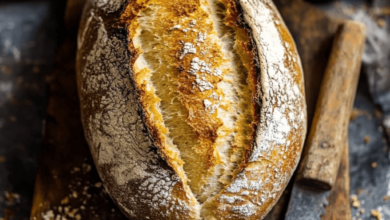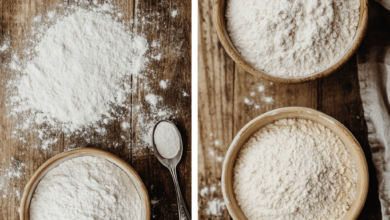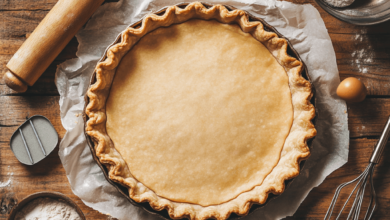What Is Fermentation in Baking and Why Is It Important?

Introduction
“What is fermentation in baking?”
Fermentation is a key process in baking that transforms dough into delicious, fluffy bread. By understanding how fermentation works and its role in the baking process, you can improve your bread-making skills and create better results every time. This guide explains what fermentation is, how it works, and why it’s essential for baking.
1. What Is Fermentation?
Fermentation is the biological process where yeast and bacteria convert sugars into carbon dioxide, alcohol, and acids.
- In Baking: Yeast or sourdough starter is added to dough to create fermentation.
- Chemical Reaction:
- Yeast consumes sugar and produces carbon dioxide, which makes the dough rise.
- Acids and alcohol contribute to flavor and texture.
2. Types of Fermentation in Baking
There are two main types of fermentation in bread baking:
1️⃣ Primary Fermentation:
- Occurs during the initial dough rise.
- The yeast activates, producing gases that expand the dough.
2️⃣ Secondary Fermentation (Proofing):
- Happens after shaping the dough.
- Allows the gluten to relax and develop, resulting in a lighter texture.
3. Why Is Fermentation Important in Baking?
- Leavening:
- Carbon dioxide created during fermentation makes the dough rise.
- Flavor Development:
- Alcohol and acids produced during fermentation add depth and complexity to the bread’s flavor.
- Texture Improvement:
- Fermentation strengthens gluten, giving bread its characteristic chewiness and structure.
- Nutritional Benefits:
- Fermentation breaks down complex carbohydrates, making bread easier to digest.
4. Factors That Affect Fermentation
Several factors influence the fermentation process:
- Temperature:
- Warm temperatures speed up fermentation, while cooler temperatures slow it down.
- Time:
- Longer fermentation allows for better flavor development.
- Yeast Amount:
- Too much yeast can cause over-proofing; too little may result in insufficient rise.
- Hydration:
- A wetter dough ferments faster, while a drier dough ferments more slowly.
5. Tips for Successful Fermentation
- Use Fresh Yeast: Ensure your yeast or sourdough starter is active and fresh.
- Control Temperature: Maintain an ideal temperature of 75–80°F (24–27°C) for balanced fermentation.
- Don’t Rush the Process: Allow enough time for fermentation to develop flavor and texture.
- Monitor Dough Expansion: Properly fermented dough should double in size during primary fermentation.
Conclusion
Fermentation is a fundamental process in baking that influences the flavor, texture, and structure of bread. By understanding how fermentation works and learning to control the factors that affect it, you can take your bread-making skills to the next level. Experiment with different fermentation times and methods to discover what works best for your recipes.
For more baking tips and techniques, visit our Kuestion.com.




